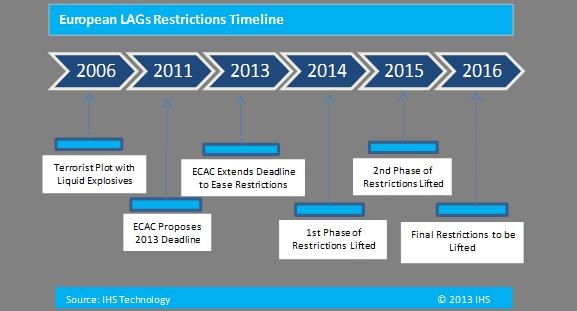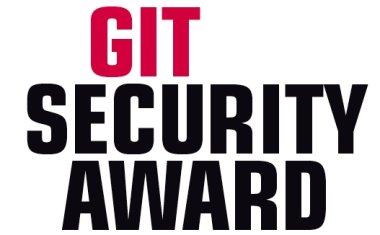Europe to Ease Restrictions on Liquids in Carry-on Baggage
Since the 2006 terrorist plot to detonate liquid explosives on aircraft bound for the United States; the amount of liquids allowed in carry-on baggage has been restricted to 100ml ...

Since the 2006 terrorist plot to detonate liquid explosives on aircraft bound for the United States; the amount of liquids allowed in carry-on baggage has been restricted to 100ml per passenger. Efforts to ease restrictions on liquids, aerosols, and gels (LAGs) have proven difficult. The European Civil Aviation Conference (ECAC) has postponed the easing of restrictions on two separate occasions. According to a recently published report by IHS, European airports are expected to ease the restrictions on LAGs starting in 2014, with the eventual lifting of all restrictions by 2016. The phased approach to easing the restrictions on LAGs is expected to contribute to 6.0% growth in 2015 as airports purchase more equipment ahead of the complete lifting of restrictions.
The easing of LAGs restrictions are expected to have an inverse effect on the liquids scanning market. As restrictions are lifted airports are expected to purchase more equipment to meet the increase throughput and detection requirements. To comply with the first phase of LAGs restrictions in 2014, European airports purchased large amounts of liquid scanning technology in 2012. This resulted in a sharp decline in the market in 2013 and is expected to contribute to continued declines over the next twelve months. IHS expects growth to resume in 2015 as airports purchase additional liquid scanning equipment in preparation for the complete lifting of LAGs restrictions in 2016.
Overall, the ECAC decision to ease restrictions on LAGs is expected to contribute to future growth in the European market. As equipment is installed revenues are poised to shift toward the service and maintenance of the large installed base of liquid scanning equipment.












